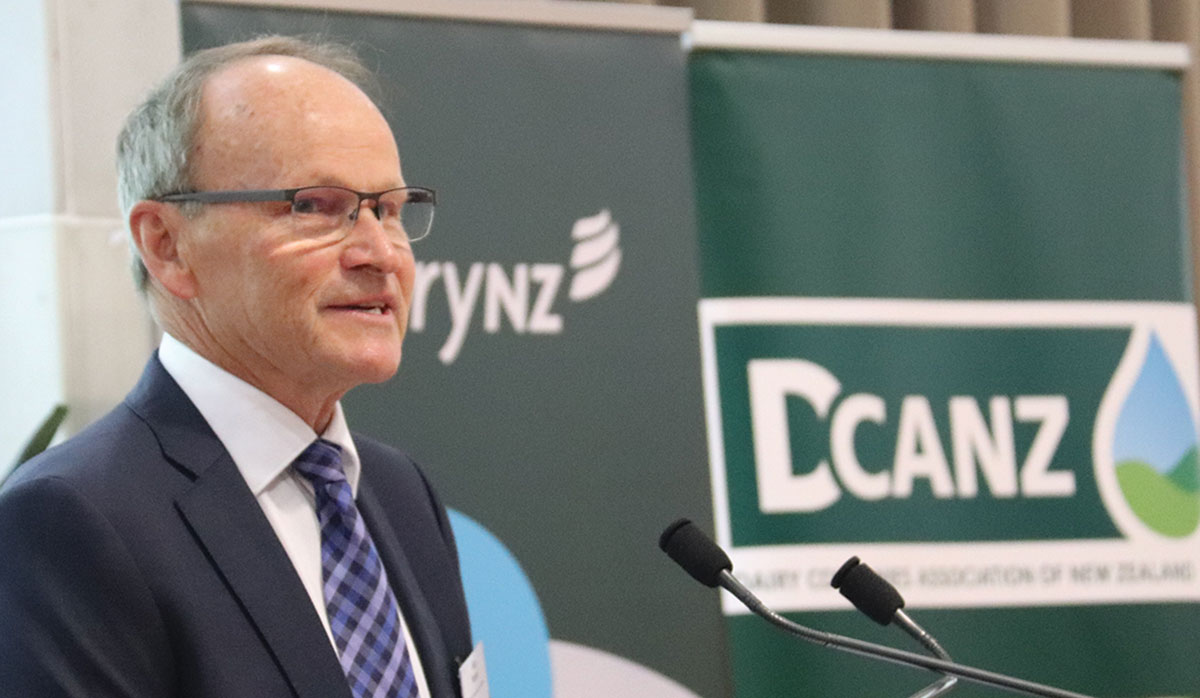MIA launches 2026 Red Meat Sector Dragon’s Den for innovative ideas
The Meat Industry Association (MIA) is once again looking for game-changing ideas for New Zealand's red meat processing and exporting sector.
Wouldn't it be great if the meat industry could get its hands on the $1.5 billion dollars it's missing out on because of non-tariff trade barriers (NTBs)?
The chair of the Meat Industry Association (MIA), Nathan Guy, says that is how much these are costing the sector annually. But he adds that he is not delusional and doesn't expect the $1.5 billion to suddenly appear in meat processing companies' bank accounts.
To put this figure in perspective, New Zealand is currently trying to get 194 NTBs removed, and these are costing us somewhere in the order of $10 billion a year.
NTBs are defined as any obstacle to international trade that is not an import or export duty and may take the form of import quotas, subsidies, customs delays, technical barriers, or other systems preventing or impeding trade. Local red tape is another way of describing these, which are generally 'technical' in nature can also be applied even if two countries have an existing free trade agreement.
Recently, Beef + Lamb NZ and MIA released a report on all the tariffs the sector is facing including the NTBs. Currently, the sector pays about $600 million in ordinary tariffs, and it should be noted that this figure includes the cost of the new 15% tariffs put on NZ meat exports by the Trump administration.
The report says that despite a strong network of FTAs, the impact of NTBs is significant and it singles out those that focus on behind the farm-gate production.
It says many of these are overly prescriptive, administratively complicated, and often don't meet the World Trade Organisations (WTOs) principle of proportionality. The report states that as an export-driven industry, it's essential for NZ to have a robust, multilateral rules-based system and that this is not an option.
The 43-page report notes that NTBs vary from market to market, which requires companies to be vigilant in understanding and meeting specific requirements. It notes the example that while innovative technologies can improve productivity without compromising hygiene practices, it often takes time for international standards to be updated to recognise these. It also singles out several others including inconsistent halal and technical requirements, burdensome and unnecessary certification and inefficient import checks.
Besides the NTBs imposed by governments, the report states that NTBs can come from private companies and non-governmental organisations which may be importing NZ meat. While it says some of the standards are voluntary, the reality is that noncompliance may mean exclusion from that market.
In essence, NTBs are a big concern for NZ and MFAT and MPI have special dedicated teams working on reducing the number of these insidious barriers to trade.
 |
|---|
|
Meat Industry Association chair Nathan Guy |
Guy admits some of the NTBs are extremely difficult and says the immediate focus is on what he describes as the "low hanging fruit".
"But we are now seeing a rise in protectionism which started when covid broke out and is continuing," he says.
On the positive side, he notes the impacts of the FTAs with the EU, the UK and the Gulf states which will continue to deliver positive outcomes for the red meat sector. But there is a final warning in this report where it states that if NZ were to withdraw from the Paris agreement, the preferential access gained by these FTAs could be put at risk.
Market Accessb
The issue of tariffs and trade barriers affects the entire primary sector to varying degrees. Besides NTBs there are things known as non-tariff measures (NTMs) which have particular impacts on the horticulture sector in the areas of sanitary and phytosanitary. They also affect that sector in such ways as processing delays, import quotas and import licensing arrangements.
These also apply to the meat industry, with the reporting noting that while some NTMs are legitimate and science based, others are convoluted, arbitrary and not science based.
Recently, Guy Roper, the chair of Dairy Companies Association of NZ (DCANZ), which represents dairy processing companies, spoke about the importance of having good access to overseas markets and says it's a key priority for his organisation.
He says they are also looking hard at non-tariff trade barriers (NTBs) because they may dilute the value of an original FTA by instituting 'technical' local laws that may make it difficult for exporters. He says a recent example of this was Canada, which failed to honour legitimate access by our dairy companies gained through the CPTPP to its market. Only after losing several legal battles did Canada finally relent.
 |
|---|
|
DCANZ chair Guy Roper. |
"We need to keep a close watch on these and really understand how many and what NTBs exist in their various forms. So far, we have identified 35 of these and are actively working hard with MFAT to bring these to an end," he says.
US Tariff War
An insightful perspective on the trade issues comes from Sir Lockwood Smith - former Agriculture and Trade Minister, Speaker of the House of Representatives and NZ High Commissioner to the UK, and still working in the world trade space.
He says that present Trade Minister Todd McClay and Foreign Minister Winston Peters are handling the situation with the US in a reasonably sensible way.
He says it's not an easy issue to deal with and certainly not in NZ's interests, especially when we are facing a 15% tariff while Australia has got away with a 10% arrangement.
Smith says NZ and other countries are right to be aggrieved by the Trump administration's actions of imposing blanket tariffs as a means of dealing with an imbalance of trade with other countries. But he says it's important to look at the reasons for this action.
"What appears to have angered Trump and his team so much are what's called anti-competitive market distortions," he told Rural News.
"This is about a government providing financial support and incentives or subsjdies to its manufacturers or farmers, which enables them to produce goods cheaply, and giving their exporters what is seen as an unfair competitive advantage. China has been a major player in this regard," he says.
Smith says research has shown that such actions behind the border can have up to three times greater negative impact on economic wellbeing and wealth creation than tariffs themselves. He says the crazy thing about some of these behind the border market distortions are that they can damage the economies of both parties.
He says there is now an attempt to persuade the USA to focus more on dealing with the distortions that have damaged US interests over the years rather than just using blanket tariffs.
"Whether that initiative will be successful, who knows," he says.
Smith says MFAT is spot on by having a significant focus on NTBs and he wonders whether NZ should work closely with the USA to deal with these anti-competitive market distortions as means of returning to a more rules-based trade regime.
Finally, he points out that since the Uruguay trade round in the mid 1990s, trade liberalisation has not been as great as it could have, and he puts this down to the NTBs.
Herd improvement company LIC has posted a 5.2% lift in half-year revenue, thanks to increasing demand for genetics.
According to the latest Fresh Produce Trend Report from United Fresh, 2026 will be a year where fruit and vegetables are shaped by cost pressures, rapid digital adoption, and a renewed focus on wellbeing at home.
The Roar is a highlight of the game hunting calendar in New Zealand, with thousands of hunters set to head for the hills to hunt male stags during March and April.
OPINION: The past few weeks have been tough on farms across the North Island: floods and storms have caused damage and disruption to families and businesses.
European dairy giant Arla Foods celebrated its 25th anniversary as a cross-border, farmer-owned co-operative with a solid half-year result.
The sale of Fonterra’s global consumer and related businesses is expected to be completed within two months.